INSIDE: Two-year-old not eating well? You’re probably not alone. Let’s look at what’s normal for toddlers and eating. I promise you it will make you feel better.
Does this message from one of my Instagram followers ring any bells with you?
I’m looking for advice with my very fussy toddler, who’s 24 months old. She started getting fussy around her first birthday, and dinner time has always been a struggle. We’ve had a second baby and are giving in to her demands for cereals and yoghurts. Help, why won’t she eat?
As the cliche goes, babies don’t come with an instruction manual! And neither do toddlers! But they should.
Many of the things we find hard with feeding toddlers are perfectly normal and predictable. But, catch us off guard because we were not expecting these changes. These bumps worry us and can make us do unhelpful things, creating feeding problems and stressing us out.
So let’s look at what’s normal for toddlers and eating. I promise you it will make you feel a whole lot better.

It’s normal for toddlers to be challenging to feed!
Save your sanity by recognising what’s normal with feeding toddlers
“Why is my toddler not eating all of a sudden.”
A toddler who eats less than when younger is something I commonly hear from parents. But it’s pretty normal.
One primary reason toddlers are trickier to feed than babies is that they’re not growing as quickly. Remember how fast your baby grew when they were tiny?
Babies generally double their birth weight by 4-6 months and treble it by their first birthday. But it takes another full year to quadruple their birth weight. That’s quite a slowdown, and it doesn’t stop there. Because after your toddler’s second birthday, growth settles down to about 2-3kg per year and doesn’t speed up again until puberty. And what happens when your child isn’t growing as quickly anymore?
“Why does my two-year-old not have an appetite?”
Their appetite drops. And when they don’t feel as hungry, they can afford to be more selective about how they satisfy themselves!
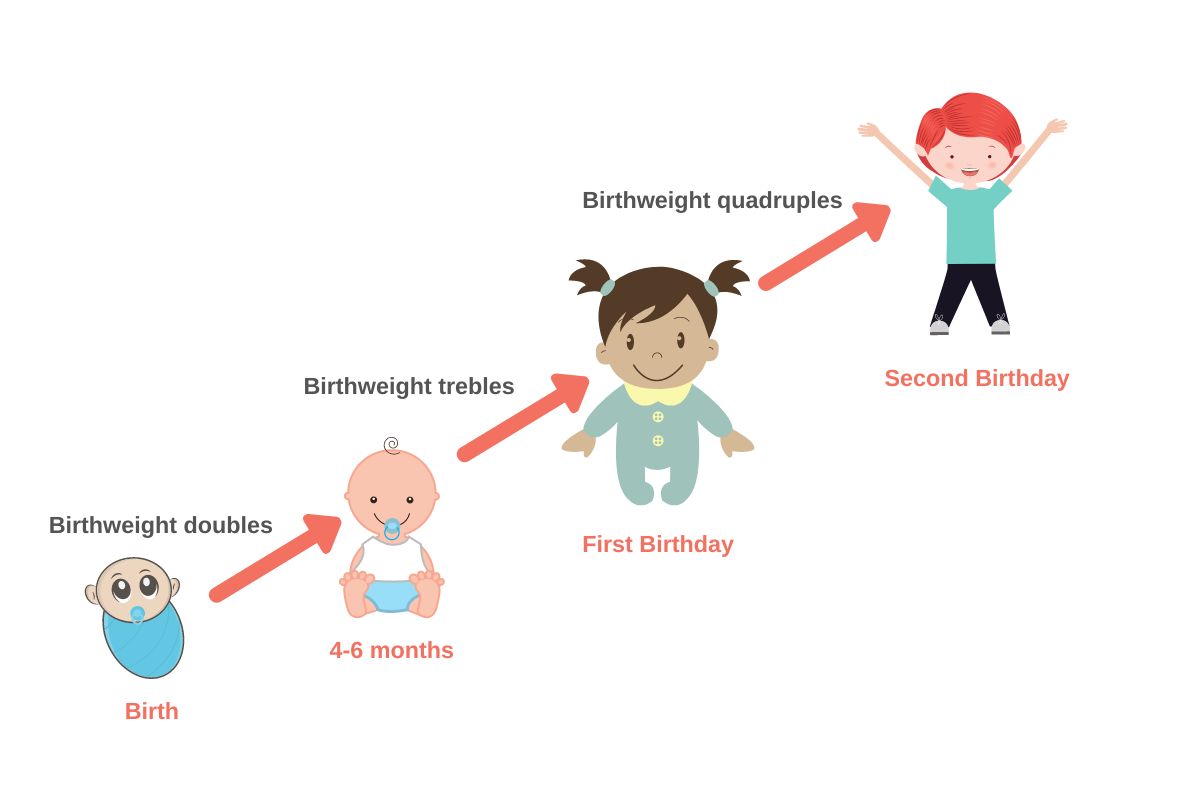
When growth slows, appetite falls and toddlers eat less
“My toddler won’t even try new food. It’s so frustrating!”
It’s soul-destroying when you spend ages making the food you know your child should like, and they won’t even touch it?! I know that feeling only too well. Just because I’m a dietitian doesn’t mean my kids want to try everything I make.
But it’s normal. So normal that it’s got a label.
The fear of trying new food is called food neophobia. And food neophobia has evolved to protect kids as they become more mobile and able to put random foods in their mouths. Because let’s face it In our hunter-gatherer days, children were more likely to survive toddlerhood if they didn’t put everything they saw into their mouths!
Being cautious about new things, including new foods, is often linked to your child’s temperament. Careful children also might be cautious about new foods. And easy-going children less so.
“She’s just so strong-willed. If she doesn’t want to eat it, that’s it!”
I’m sure you’re no stranger to this one! It’s normal for toddlers to test limits and want to be in control at times. Or all the time!
You’ve had similar battles about getting strapped to the car seat or changing nappies. Eating’s no different. And you’ll never win if you try to take on a fight at mealtimes.
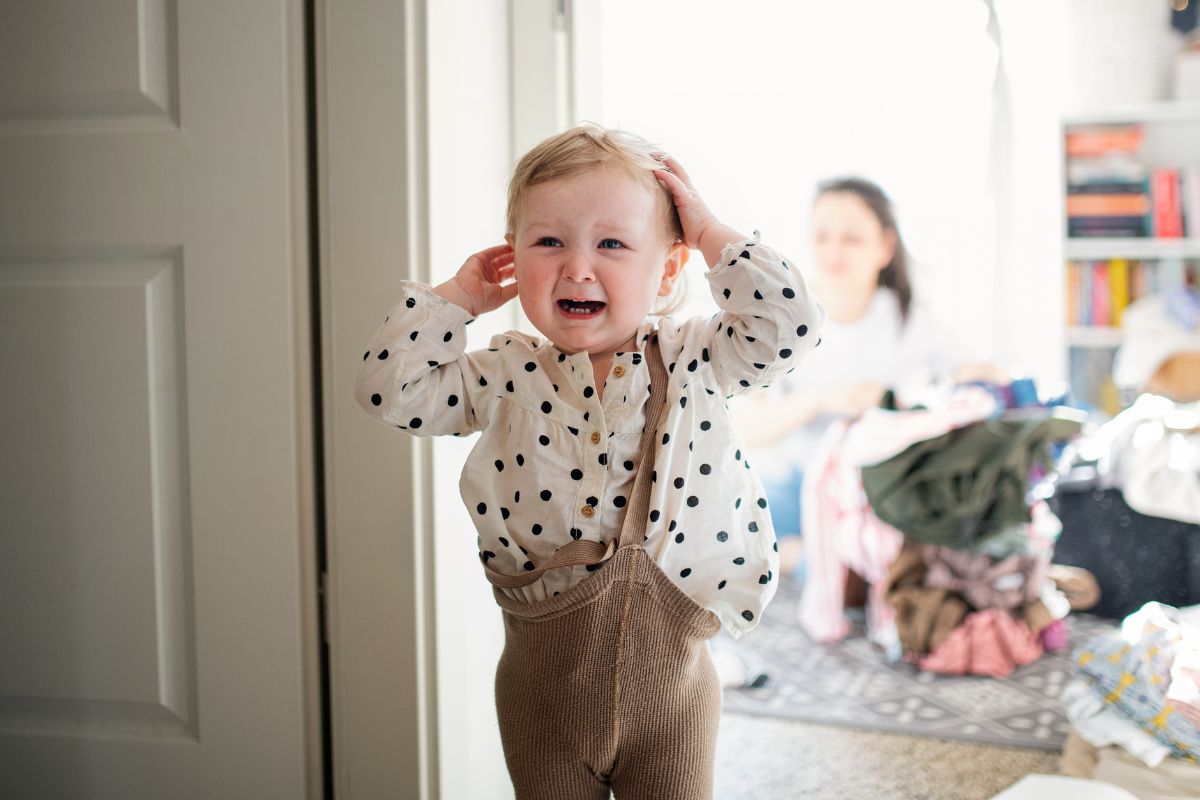
Mealtimes aren’t the only challenging times with toddlers!
“My two-year-old won’t eat vegetables or anything green!
Sound familiar? I’m sure you know it’s normal for toddlers not to love ‘green vegetables’ even though these are the foods we want them to eat.
But if we’re honest, I’m sure we know why. Green vegetables are bitter tasting with some pretty challenging textures too. Research shows that 70% of preschoolers are sensitive to the bitter compounds in many vegetables, so it makes sense that they’re one of the first foods to be shunned during toddlerhood!
There’s a strong genetic component to taste preferences. So if Dad was a fussy eater, blame him!
“My two-year-old isn’t eating dinner.”
Have you ever noticed that your child breakfasts like a king but eats dinner like a pauper?!
I can think of 5 reasons dinner is the hardest meal of the day.
- Your toddler is tired after a long day.
- Your toddler is full after a day of meals and snacks
- Foods served at dinner time are often challenging foods like vegetables, one-pot meals and chewier foods like meat
- You’re tired!
- Parents often put too much pressure on dinner as the day’s most important and nutritious meal. Pressure at mealtimes reduces intake.
“My two-year-old won’t eat anything but milk (crackers, bread, yoghurt!).”
If I had a euro for every parent who said this…well, you know the rest! Again, normal!
Children have evolved to like sweet foods. After all, their first food, milk, is very sweet. To kids, sweetness signals that food is rich in energy. And kids’ bodies are telling them to eat lots of energy to power their brains. Carbohydrate foods like crackers are also so easy to like. A cracker tastes like a cracker whenever you eat it. The manufacturer controls its quality, unlike food like carrots which are sometimes squishy and sometimes hard, sometimes sweet and other times tasteless. Kids prefer predictability with their food.
The desire for consistency is one reason two-year-olds want snacks and nothing else. Snacks comprise easy-to-like foods like milk, crackers and biscuits. In contrast, the main meals consist of challenging foods.
“Sometimes it feels like two steps forward and one step back!”
One minute you feel you’re making progress, maybe your toddler tries a new food, and then suddenly, you’re back to square one again.
Guess what, normal!
Learning to eat is like learning to walk. Your child might have mastered walking once they’re on a nice smooth path but might wobble if you’re on an uneven path. It’s the same with eating; your child might be competent in eating certain foods but still need help with trickier textures and flavours. This is why many children struggle with more challenging foods like chewy meat. They’re still learning and developing their eating skills. They need more time to practice.

Sometimes, we just need to be patient and wait for toddlers to gain more skills with eating.
Should I be worried about my toddler not eating?
So to reassure you, you’re not alone if your toddler is:
- Eating less now that when they were younger
- Wary about new food
- Testing limits by refusing to eat meals
- They test limits by asking for alternatives or favourite snacks between meal times.
“My 2-year-old won’t eat and is losing weight.”
As you’ve seen, it’s normal for toddlers to become more ‘picky’ with food. However, some toddlers are at the extreme end of the picky eating spectrum. The information in this blog is still relevant if your child is a problem eater, but you will need more personalised professional help with feeding. You might need help from a registered dietitian, an occupational therapist, a speech therapist, a clinical psychologist or a combination of these professionals. The earlier you get help, the easier it will be for your child to eat successfully.
The more ‘RED FLAGS’ your child has, the more likely they need additional feeding support.
Does your child:
- Have ongoing poor weight gain or weight loss (falling growth centiles)
- Have persistent choking, gagging or coughing during meals
- Have ongoing problems with vomiting
- Avoid all foods in a specific texture or food group
- Less than 20 foods your child consistently eats (not always, just most of the time), especially if they don’t replace dropped foods with new ones.

Watch out for red flags and talk to your health professional if you’re worried about extreme picky eating.
Do two-year-olds go through phases of not eating?
So we’ve looked at the significant changes that can affect eating as your child grows from a baby to a toddler. But there are further reasons why your toddler might eat more one day and less another. Or even explain why your two-year-old gobbles down one meal and rejects another.
They’re not sitting comfortably.
The best position for your toddler is to sit upright with their feet flat on a footrest or stool. This sitting position helps to maintain stability which is vital for chewing and using their hands to eat. The easiest way to work it is to keep your toddler in a high chair with a built-in footrest.
They’re teething or sick.
Let’s face it if you had a toothache or were under the weather. You don’t feel like eating, either. So, it’s perfectly natural for small kids to stop eating or eat very little when they’re sick or teething. They usually make up for it when they feel better. Just make sure they stay well hydrated.
They’re distracted
TVs, iPads, toys at the table or too many people around at mealtimes can distract your child from eating. Eating requires a lot of concentration, and when we divert their attention, it’s hard for them to focus on their food.
Your toddler wants to feed themselves.
I bet at some stage. Your toddler has said, ‘I want to do it myself’! Independence goes for eating too. And while it’s tempting to keep spoon-feeding a toddler, it’s not helpful when they’d prefer to feed themselves. At this age, it’s best to encourage self-feeding, even if it’s messy and takes longer. Yes, they won’t eat as much when they feed themselves. But quantity isn’t the aim of the game. Encourage independent eating whenever you can.
Your toddler is tired.
Tiredness, especially at the end of the day, is ONE reason dinner can be so challenging for toddlers.
You’re putting too much pressure on mealtimes.
Instead of sharing family meals, we often think about feeding our toddlers or “getting food into them”. Unfortunately, this creates pressure at mealtimes. The more your toddler feels pressured to eat, the less they eat!
Your toddler isn’t hungry.
And sometimes your toddler just won’t be as hungry as you think they should be. They may have eaten a lot already that day or just filled up on milk or fruit.
So, the next time your toddler refuses a meal or eats very little, don’t rush to conclusions about the food. There may be another reason!

Tiredness can often mean dinner is the hardest meal of the day for toddlers
What do you do when your two-year-old doesn’t eat?
You can’t fix genetics and personality or skip the toddler stage of development.
But it’s in your power to create positive mealtimes experiences and to allow lots of opportunities for your child to develop their eating skills.
9 simple things you can do to create positive mealtime experiences
- Take the pressure off mealtimes. Try following the Division of Responsibility in Feeding. You’re in charge of when, where and what is served at mealtimes. But it’s up to your toddler how much and whether to eat.
- Create a predictable schedule of meals and nutritious snacks (or mini-meals).
- Keep in mind what’s normal. Your toddler won’t eat the same amount of food daily or meal to meal. They also won’t eat as much as their cousin or friend!
- Make sure our toddler is sitting comfortably and supported
- Reduce distractions at mealtimes
- Let your toddler self feed
- Eat together
- Serve meals family-style
- Get support from an experienced health professional. And why not check out my Feeding Your Toddler Online Course-8 Easy Steps to Successful and Enjoyable Mealtimes

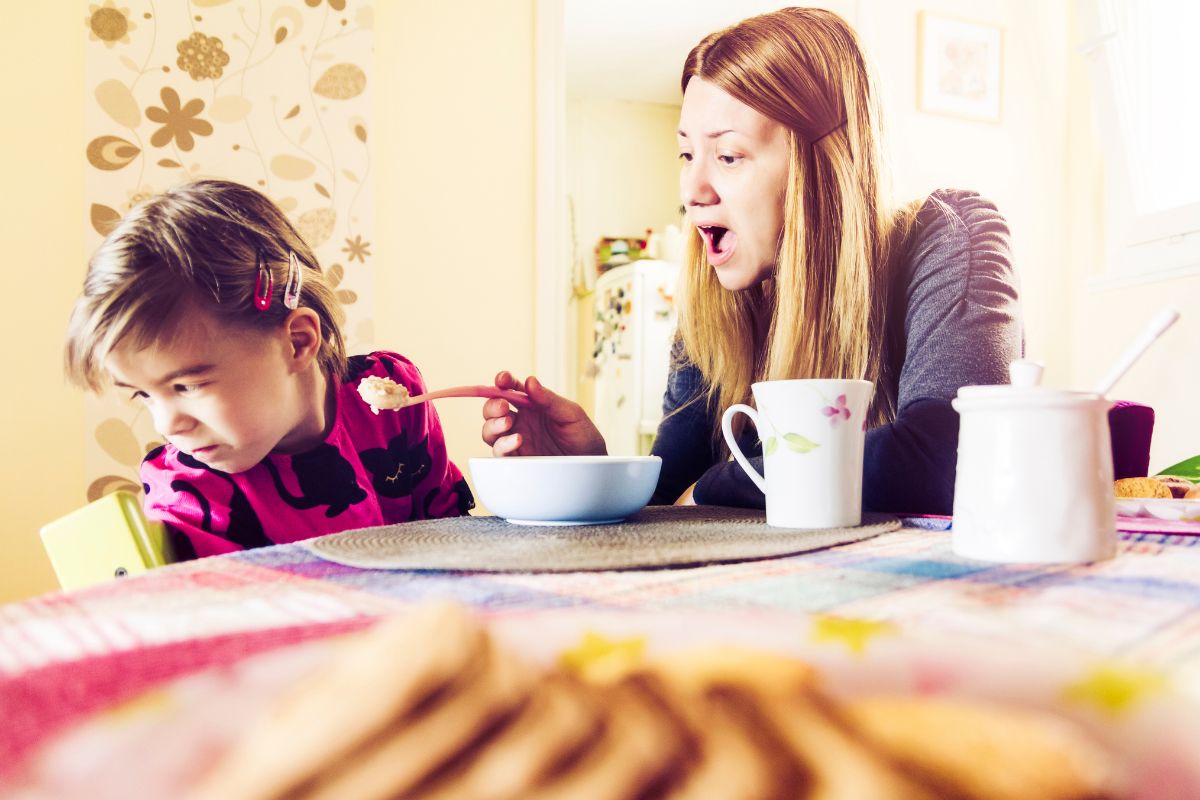

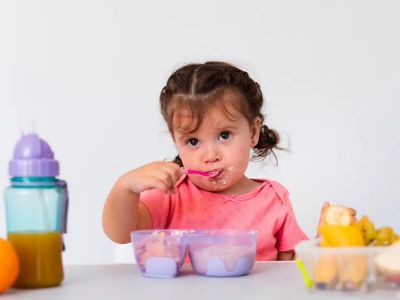
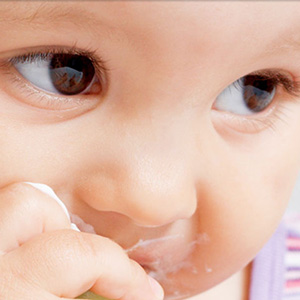


Hi, I have 2year 4 months toddler. He started to refuse food around 6 months or even more ago. He is on iron supplements and also taking some fortijuice because he is refusing all food !!!
I need help badly, I feel tired and hopeless:(
Hi Rita
This is very stressful. Have you been linking in with a registered dietitian? There are also other health professionals that can help with feeding such as occupational therapists, speech therapists and psychologists specialising in feeding.